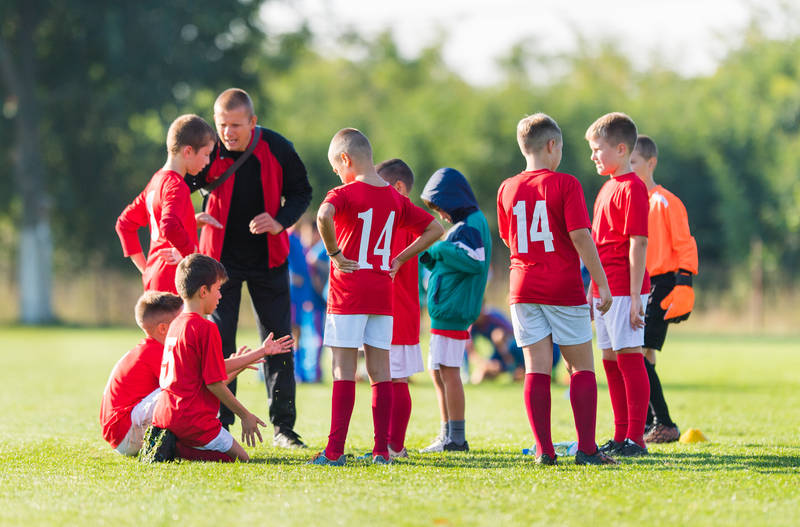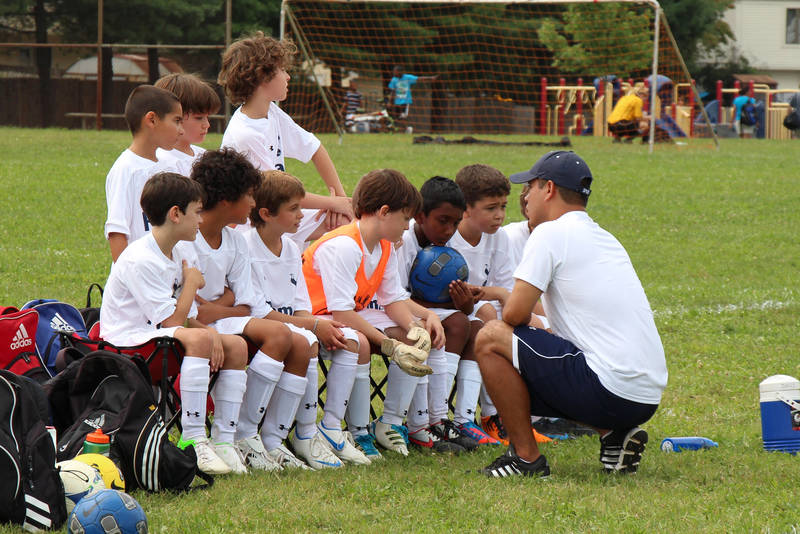U15 football represents a crucial developmental stage for young players in the United Kingdom, typically encompassing boys and girls aged 14-15 years old. During this period, players begin to refine their technical abilities while developing tactical understanding and physical attributes that will serve them throughout their sporting journey. Youth football at U15 level strikes an important balance between competitive development and enjoyment, offering players regular matches within organised leagues that help prepare them for the increased demands they'll face as they progress toward adult football.
The transition from small-sided games to full 11-a-side matches is usually complete by U15 level, with pitch and goal sizes closely resembling those used in the adult game. Many grassroots clubs across the UK provide dedicated U15 teams, creating accessible opportunities for teenagers to participate regardless of ability level. While some may still use the term "soccer" when discussing the sport internationally, in the UK it remains firmly known as football.
Local football associations throughout Britain organise U15 leagues that run throughout the traditional season, typically from September to May with breaks during winter. These structured competitions allow young players to test themselves against peers from neighbouring areas, developing both individual skills and team cohesion in a supportive environment. For coaches and parents, this age group presents unique challenges as players navigate physical development at different rates and become increasingly invested in tactical elements of the game.
Understanding U15 Football
U15 football represents a crucial developmental stage where players aged under 15 refine technical skills while adapting to more complex tactical concepts. This age group experiences significant physical and cognitive growth, enabling coaches to introduce more sophisticated training methods.
Age Group and Eligibility
U15 football encompasses players who are under 15 years of age at the start of the relevant season. In the UK, this typically means players who have not yet reached their 15th birthday by 31st August of the current season year. Most youth leagues strictly enforce these age boundaries to ensure fair competition.
Players at this level often display varying physical development rates, with some experiencing growth spurts whilst others develop later. This natural disparity creates challenges for coaches who must balance team composition and playing time.
Registration requirements generally include proof of age, parental consent forms, and club membership fees. Many leagues also implement identification cards to verify player eligibility during matches.
Skills and Development
U15 players should focus on refining their technical abilities while developing tactical understanding. Key technical skills include:
- Ball mastery - Advanced dribbling, turns and close control
- Passing - Short and long-range passing with both feet
- Shooting - Power, placement and various techniques
- Defensive skills - Proper tackling, positioning and marking
Tactical awareness becomes increasingly important at this age. Players should understand positional play, team formations (commonly 11-a-side formats), and strategic concepts like pressing, counter-attacking and maintaining possession.
Training sessions typically combine technical drills with small-sided games that emphasise decision-making. The balance between structured practice and creative freedom is essential for proper development at this stage.
Role of Adult Members
Coaches, parents and club officials play vital roles in supporting U15 players' development. Coaches should hold appropriate qualifications, typically starting with FA Level 1 as a minimum requirement for leading sessions.
Adult members must prioritise player welfare, creating safe environments where youngsters can develop without undue pressure. This includes understanding the physical and emotional challenges unique to this age group.
Parents should provide encouragement rather than criticism, respecting coach decisions even when disagreements arise. Many clubs implement codes of conduct that outline expectations for all adult members.
Officials who manage matches at this level need sufficient knowledge of modified rules that may apply in youth soccer, balancing competitive spirit with developmental priorities.
Training and Preparation
Effective training and preparation for U15 football players requires structured approaches that address technical skills, tactical understanding, and physical development. A well-designed programme should balance these elements while considering the developmental stage of teenage players.
Training Camp Fundamentals
Training camps offer intensive periods of focused development for U15 players. These concentrated sessions should include both technical work and tactical understanding, ideally organised around monthly topics with weekly themes. A typical camp might begin with fundamental skills assessment to identify individual and team strengths and weaknesses.
Morning sessions often focus on technical skills—passing, dribbling, and shooting—while afternoon sessions emphasise tactical concepts and match situations. Small-sided games (4v4, 5v5) are excellent for maximising touches and decision-making opportunities.
Rest and recovery must be built into the schedule, with appropriate nutrition guidance provided. Video analysis sessions can help players understand concepts better, reviewing both their own performances and professional examples.
Combination Play and Receiving Techniques
At U15 level, players should develop more sophisticated combination play and receiving techniques. Wall passes, third-man runs and overlaps should feature prominently in training sessions, helping players understand movement patterns and timing.
Receiving techniques merit special attention. Players should practise:
- Receiving with different body parts (feet, thighs, chest)
- Taking first touches into space
- Receiving while screening defenders
- Checking shoulders before receiving
Drills can progress from unopposed technical work to pressured situations. For example, start with basic passing patterns, then add defensive pressure gradually.
Communication during combination play is vital. Encourage verbal cues and visual signals between teammates to enhance understanding of when and where to move.
Importance of Physical Fitness
Physical development at U15 level shows significant variance between players. Training programmes must accommodate these differences whilst building overall fitness. Focus on developing aerobic capacity, strength, speed, and agility rather than excessive bulking.
Circuit training works well for this age group, combining body-weight exercises with football-specific movements. Consider these components:
- Speed and agility drills with the ball
- Core strength exercises
- Plyometric work for explosive power
- Endurance training through small-sided games
Injury prevention should be embedded in sessions through proper warm-ups and cooldowns. Teach players about the importance of hydration, nutrition and sleep for recovery.
Goalkeeper-specific physical training should address diving technique, jumping power and reaction times alongside general fitness requirements that all players need.
Competitions and Teams
U15 football represents a crucial development stage where young players begin to showcase advanced technical skills and tactical understanding. The competitive landscape at this age group offers various opportunities for teams to test their abilities and grow as footballers.
Local and National Competitions
In the UK, U15 teams compete in various structured leagues organised by County Football Associations. These typically include local Sunday leagues, school competitions, and district tournaments that serve as developmental platforms. The prestigious Junior Premier League provides higher-level competition across regions for more advanced teams.
National cups like the English Schools' FA U15 Cup attract schools from across the country, while the FA Youth Cup introduces professional academy teams at later stages. Many clubs also participate in tournaments during school holidays, ranging from one-day festivals to week-long events.
International tournaments like the Gothia Cup in Sweden and the Dana Cup in Denmark offer British U15 teams valuable exposure to different playing styles and cultures. These experiences extend beyond the pitch, contributing significantly to players' personal development.
Team Dynamics and Strategy
At U15 level, team dynamics become increasingly sophisticated as players develop physically and mentally. Most teams adopt 11-a-side formations, commonly 4-3-3 or 4-4-2 systems, focusing on positional play and tactical awareness.
Player specialisation becomes more pronounced at this age. Coaches typically identify players' natural positions while still encouraging versatility and understanding of multiple roles. This approach helps develop football intelligence and adaptability.
Training sessions focus on technical refinement, tactical understanding and physical conditioning. Coaches implement more complex pressing strategies, attacking patterns and set-piece routines adapted from the professional game.
Communication between players grows in importance, with team captains and natural leaders emerging. Many successful U15 teams emphasise cohesion through team-building activities outside training sessions.
Video analysis becomes a valuable tool, with many teams reviewing match footage to identify strengths and areas for improvement. This analytical approach helps young players develop a deeper understanding of the game's tactical elements.
Online Presence and User Engagement
Digital platforms have become essential for U15 football clubs to connect with players, parents, and supporters. Effective online engagement helps clubs build communities while navigating important considerations around data collection and advertising practices.
Use of Cookies and Privacy Preferences
Football club websites collect data through various types of cookies that serve different purposes. Functional cookies ensure basic website operations work properly, such as remembering login details and language preferences. Performance cookies gather information about how visitors use the site, helping clubs identify popular content and improve user experience.
Many youth football websites now implement cookie banners that allow visitors to set privacy preferences. This practice has become increasingly important since the implementation of data protection regulations like GDPR.
Parents of U15 players often express concerns about data collection. Clubs that clearly explain their cookie policies and provide straightforward opt-out mechanisms tend to build greater trust among their community.
Advertising and Targeted Marketing
Youth football organisations use targeted advertising to promote training programmes, tournaments, and equipment to relevant audiences. This approach helps clubs reach potential new members while maximising limited marketing budgets.
Targeting cookies track browsing habits across different websites, allowing advertising partners to display relevant ads to specific demographics. For example, parents who search for football boots might later see ads for local U15 trials on social media platforms.
Personalisation has become crucial in youth football marketing. Clubs analyse traffic sources and engagement patterns to deliver customised content that resonates with different segments of their audience.
Ethical considerations are paramount when marketing to families with young players. The best clubs balance effective advertising with responsibility, avoiding excessive targeting or what some in the soccer community might call "aggressive" marketing techniques.
Show less












